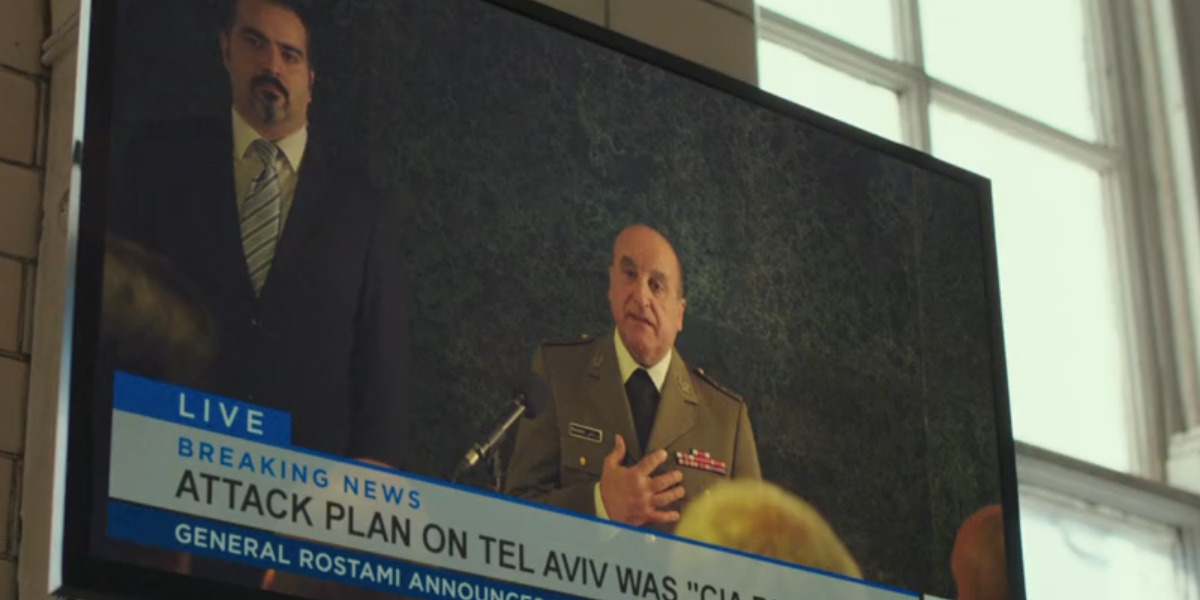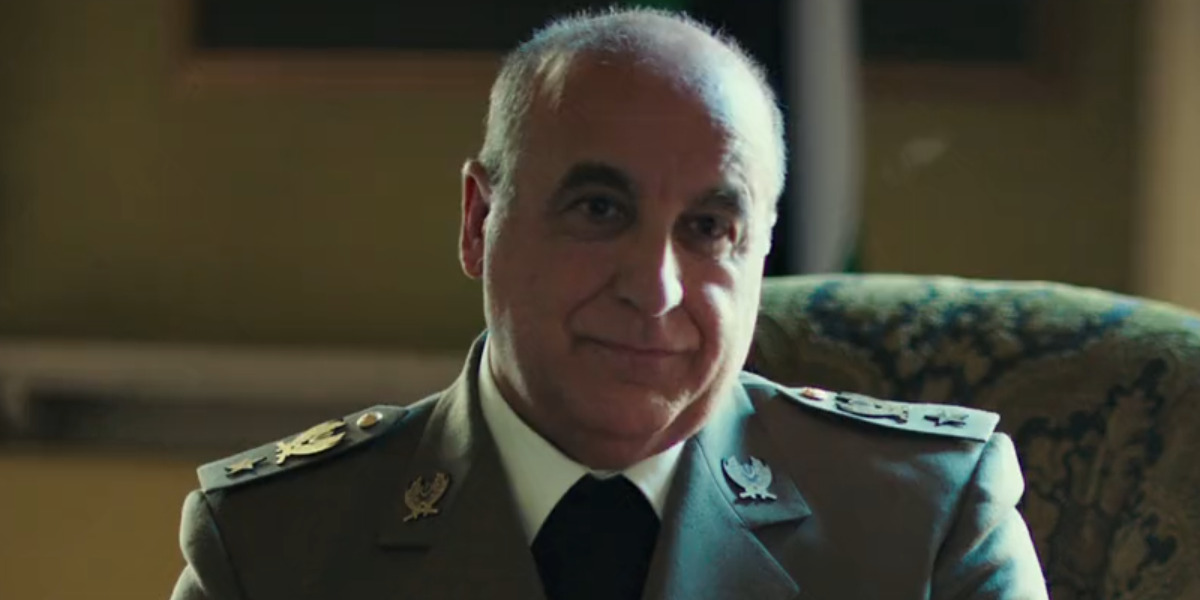‘American Assassin,’ an action-thriller film revolving around a new CIA recruit with a thirst for revenge, charts an entertaining and adventurous narrative accompanying the protagonists in their battle against terrorism. Following Mitch Rapp and his traumatic past, wherein he lost his fiancé to a terrorist attack, the film focuses on his career in a Black Ops CIA assassination program. Under Ex-Navy Seal Stan Hurley’s guidance, the young man puts his hard-earned skills and fierce dedication to good use and attempts to prevent a nameless rogue criminal, Ghost, from delivering a deadly weapon to a trigger-happy enemy.
Within the film, General Rostami, an associate of Iranian Minister Behruz, remains a crucial point of conflict as Ghost’s employer, who is seeking out Russian-grade plutonium for the development of illegal nuclear weapons. Therefore, considering the politics behind Rostami’s character, viewers must wonder if the man has any basis in reality. SPOILERS AHEAD!
General Rostami is a Fictional Character
No General Rostami from ‘American Assassin’ is not based on an actual real-life person. The man starts off as the chief of staff of the Iranian military and a leader of the opposition within the Iranian Parliament. The man holds conservative political beliefs and wants to put Iran on the map as a nation with nuclear power unbothered by the breach of the Nuclear Non-Proliferation Treaty. Thus, within the story, which revolves around terrorism, he poses as a feasible initial antagonist.

Nevertheless, like the film at large, Rostami himself also remains fictitious in nature. Much of his storyline emerges from the film’s modernization of its source material, Vince Flynn’s eponymous 2010 spy thriller novel that presents Mitch Rapp’s backstory. Given the social prevalence of Iran’s nuclear ambitions— a topic of international diplomacy as relevant in 2017 as it is now— Rostami’s character and plotlines somewhat present a reflection of reality.
Nevertheless, little else about his character parallels reality outside of Rostami’s simple desire to acquire nuclear power. For instance, the plutonium route that Rostami takes in his quest diverges from reality, where uranium seems to be a more significant focus in the Iranian regime’s real-life attempts. Thus, we can conclude that Rostami and his villainous plans have no basis in reality.
Over time, similar Middle Eastern characters with villainous motives have been employed in Hollywood films, especially in narratives revolving around terrorism. Moreover, his partnership with Ghost, an American CIA Agent gone rogue, further cements his characters’ basis in fictionality. Thus, as with most stories, ‘American Assassin’ also maintains a one-dimensional depiction of such a character— a genre convention that ends up playing in its favor.
Ultimately, General Rostami remains crucial to the film’s plot progression. Therefore, within the film’s fictionalized narrative, the man, created in service of the storyline, similarly remains a work of fiction with no relation to real-life Iranian political officials.
Read More: America’s Test Kitchen: The Next Generation Renewed For Season 2 at Amazon Freevee


